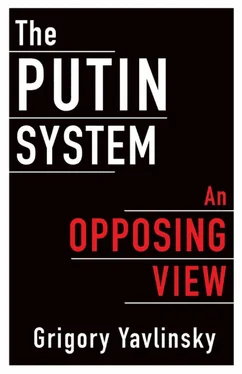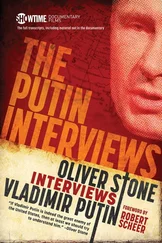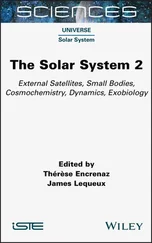On March 18, 2018, presidential elections were held in Russia. With Vladimir Putin and his inner circle in nearly total control of the entirety of the country’s government apparatus—the infamous “power vertical”—and of every significant financial resource that could be used for political purposes, the outcome seemed to be predetermined. Yet it was not automatic, given that, even under these circumstances, open support for democratic opposition, not only in its traditional centers such as Moscow and Saint Petersburg but also in such places as Pskov and Sakhalin, was quite considerable. The extent of this support and the potential for its further rapid growth have been revealed by the results of the elections to local councils, held on September 10, 2017. In Moscow local councils, we were proud to see that Yabloko has become the second-largest political force after Putin’s United Russia, increasing its representation more than tenfold by gaining 176 seats, or nearly 12 percent of the total number. And, symbolically, we won all the seats in the district in which Vladimir Putin is registered to vote.
The goal of the authorities during the 2018 election was to secure for Putin the kind of landslide after which any democratic opposition can be totally obliterated and ignored, so that his successor can be picked and groomed without any undesirable influences from outside of the Kremlin. This required an array of means that, to the best of our knowledge, ranged from trivial fraud in places like Moscow to injecting fake candidacies of pop stars and other patently unqualified contenders, which made Putin look like the bedrock of sanity by comparison.
As Yabloko’s candidate in the 2018 presidential election, my primary goal for our democratic alternative in these elections was to wage the kind of substantive domestic as well as international campaign that could, in spite of the Kremlin’s control over Russia’s mass media, generate some constraints upon the possibility of a further transformation of Russia’s authoritarian regime in a decidedly totalitarian and militaristic direction over the next six years of Putin’s fourth presidential term. To achieve this, Yabloko openly spoke about this threat, openly campaigned for the end of Russia’s military interference and “hybrid warfare” in Ukraine and Syria, and openly denounced the Kremlin’s intrusion in the political processes in Western countries on the side of antidemocratic forces that are sowing division, violence, and hate.
To ensure the success of this strategy, which extends far beyond the election, it is essential for the Western public and its political class to pay attention to liberals in Russia and their struggle. Indeed, listening and engaging in a continuous dialogue is arguably the most effective, and perhaps even the only realistic way to support them, given the draconian legal restrictions on all other forms of foreign political involvement in Russia. Such a dialogue is presently impeded not only by the rising economic and political barriers on both sides but also by the drastic de-intellectualization of politics in both Russia and Western countries and the ensuing disintegration of the universal language of mutual understanding across cultures and political systems. Part and parcel of this decay is the decreasing amount of high-quality translations into English of conceptual political writings in the languages of non-English-speaking countries, such as Russia.
If we want the antiauthoritarian forces in Russia and in the West to strengthen each other and to amplify each other’s voices in our native languages, we must break through these barriers by encouraging more translations of original political works that effectively convey our respective messages to each other while preserving the authenticity and the context of the original. My main aim in bringing the present translation of this book to an English-speaking audience is to contribute to such a cross-cultural dialogue.
Iam grateful to my colleagues, all brilliant and honest intellectuals, for the constant discussions in which this book was born: Vitaly Shvydko, Andrei Kosmynin, Victor Kogan-Yasny, and Eugenia Dillendorf.
My special appreciation to Antonina and Jean-Claude Bouis, without whom this volume would not exist.
Dmitri Glinski’s wonderful translation evinces a deep understanding of the book’s substance, and I am extremely grateful to him for that. I thank Igor Yakovlev, who helped me in the organization of the book’s translation.
I also thank the anonymous reviewers who recommended this book for publication for the credit of trust they expressed in me. My words of thanks go to the Columbia University Press team for their attentive and professional handling of the manuscript.
In conclusion, I would like to thank my beloved family for their unselfish love and support. They have made contributions to the book in a variety of ways.
1
THE POLITICAL SYSTEM OF PUTIN’S RUSSIA AND ITS SIGNIFICANCE FOR WORLD AFFAIRS
At the turn of the millennium, in the wake of a rapid and, in many ways, catastrophic collapse of the Soviet political and economic system, a peculiar social and economic formation became reality in the “new” Russia. What I am talking about are not any particular events or even trends that have been present in Russian political and economic life over the past two decades but rather the overall framework of entrenched economic and social relationships that now exist there. Having emerged gradually over this period of time, this problematic framework is now entrenched and normalized in Russia. This framework is what the Marxist tradition used to call the “social order”—a set of substantive relationships that shape the texture of social life for the long term, regardless of what people themselves say or think about these relationships.
In examining the problematic aspects of the post-Soviet Russian social order, my primary focus (perhaps because of my mind-set and range of interests) was on the economic aspects of the system, which I believe are a major cause of Russia’s current ills. To the extent possible, and based on my experience, I sought to grasp and to outline, in more or less scholarly terms, the property ownership and management relationships in post-Soviet Russia. For all the high drama of Russia’s political conflicts of the early 1990s, I believed, and continue to believe, that, in the end, this political turmoil was subordinate to those rather deep but not always evident economic developments that shaped the peculiar type of Russia’s “new” capitalism. This capitalism emerged not so much as a result of, but rather against the wishes and calculations of nearly all the individuals and interest groups involved in its formation—forces that were frequently opposed to each other by their objective interests as well as by subjective aspirations.
But what exactly is the peculiar new capitalism in Russia? Let me outline briefly what I considered to be the main features of the Russian version of the post-Soviet economic system. I will then compare it to the current situation, and thus we shall see whether its principal elements are still relevant today.
The so-called reforms instituted after the fall of the Soviet Union were in fact not reforms at all but rather the Russian government’s passive muddling along with the flow of uncontrolled developments. As a result of this, by the end of the 1990s we in Russia found ourselves hostage to an odd, eclectic system of economic relations. This system combined, in a bizarre fashion, elements of disparate phenomena, such as underdeveloped classic capitalism; institutions of modern postindustrial financial capitalism that were thoughtlessly added to the mix; relics of the Soviet-type administrative command economy and of the shadow economy embedded in it; semifeudal relationships rooted in Russia’s pre-Soviet history; and, finally, trivial economic crime, such as bribes and fraud, as part of everyday business life.
Читать дальше












